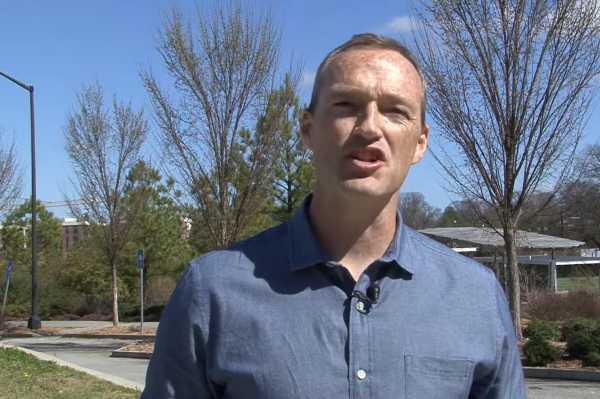Perry Speaks 'Candidly' About Social Security in Op-Ed
Rick Perry, whose comments comparing Social Security to a “Ponzi” scheme, has taken hits from both sides of the aisle. The Republican governor of Texas is now backing away from his Ponzi scheme comparison in a letter urging for Social Security reform as Republican presidential candidates continue to criticize the Texas governor.
In a Monday op-ed in USA Today, Perry clearly describes why the program, which offers seniors a monetary safety net in their retirement, is flawed and unfair to young workers.
"By 2037, retirees will only get roughly 76 cents back for every dollar that is put into Social Security unless reforms are implemented. Imagine how long a traditional retirement or investment plan could survive if it projected investors would lose 24% of their money?" he wrote.
Though Perry touted himself in the letter as an honest leader who is not afraid to speak candidly with Americans, he was careful not to repeat his previous stinging comparison of Social Security to a Ponzi scheme.
Perry made the Ponzi scheme reference during a stump speech in Iowa. In an address to an Iowa crowd he said of Social Security, "It is a Ponzi scheme for these young people. The idea that they're working and paying into social security today, that the current program is going to be there for them, is a lie." He repeated his comparison during the Politico debate in California.
The term Ponzi scheme refers to immigrant mastermind Charles Ponzi who ran a fraudulent investment firm in the early 20th century. Ponzi's firm, Securities Exchange Company, defrauded investors out of millions of dollars by paying off pervious investors with the money of new investors. However, audits revealed Ponzi was at least $7 million in debt.
Some have defended Perry's evaluation. Michael Tanner, a senior fellow at the Cato Institute, wrote in a Nation Review article, "Rick Perry got this one right."
Tanner noted that Social Security and Ponzi schemes are not "perfectly analogous" because the U.S. government can cover the loss of investors by mandating that new workers pay more taxes to make up the difference. However, like Ponzi himself, Social Security is facing more than $20 trillion in unfunded future liabilities, said Tanner.
Perry's critics acknowledge Social Security's fault, but blast the comparison to a criminal venture.
Despite the explanations of Tanner and others, fellow candidate Mitt Romney seized the reference as an opportunity to attack his strongest opponent for the 2012 GOP nomination. In a CNN-ORC poll released Monday, Perry is leading Romney 30 to 18 percent among GOP and independent voters. Romney held firm to the frontrunner position before Perry jumped into the 2012 race in early August.
During last week's debate, Romney told voters, "Our nominee has to be someone who isn't committed to abolishing Social Security but to saving Social Security."
Other candidates vying for the spotlight in the GOP nominee race have also come out against Perry's remark.
Minnesota Congresswoman Michele Bachmann stated in a Friday interview on CNN's "John King USA," "America needs to keep its promise to senior citizens, I talk to them all the time. I love senior citizens. I care about them."
Perry explained the meaning behind his August comments in the letter and clarified that he does not want to abolish Social Security.
"America's goal must be to fix Social Security by making it more financially sound and sustainable for the long term," he stated.
Perry also rebuffs Romney and Bachmann, accusing his opponents of being too afraid to speak plainly about issues threatening Americans' welfare.
"For too long, politicians have been afraid to speak honestly about Social Security. We must have the guts to talk about its financial condition if we are to fix Social Security and make it financially viable for generations to come," he proclaimed.






















